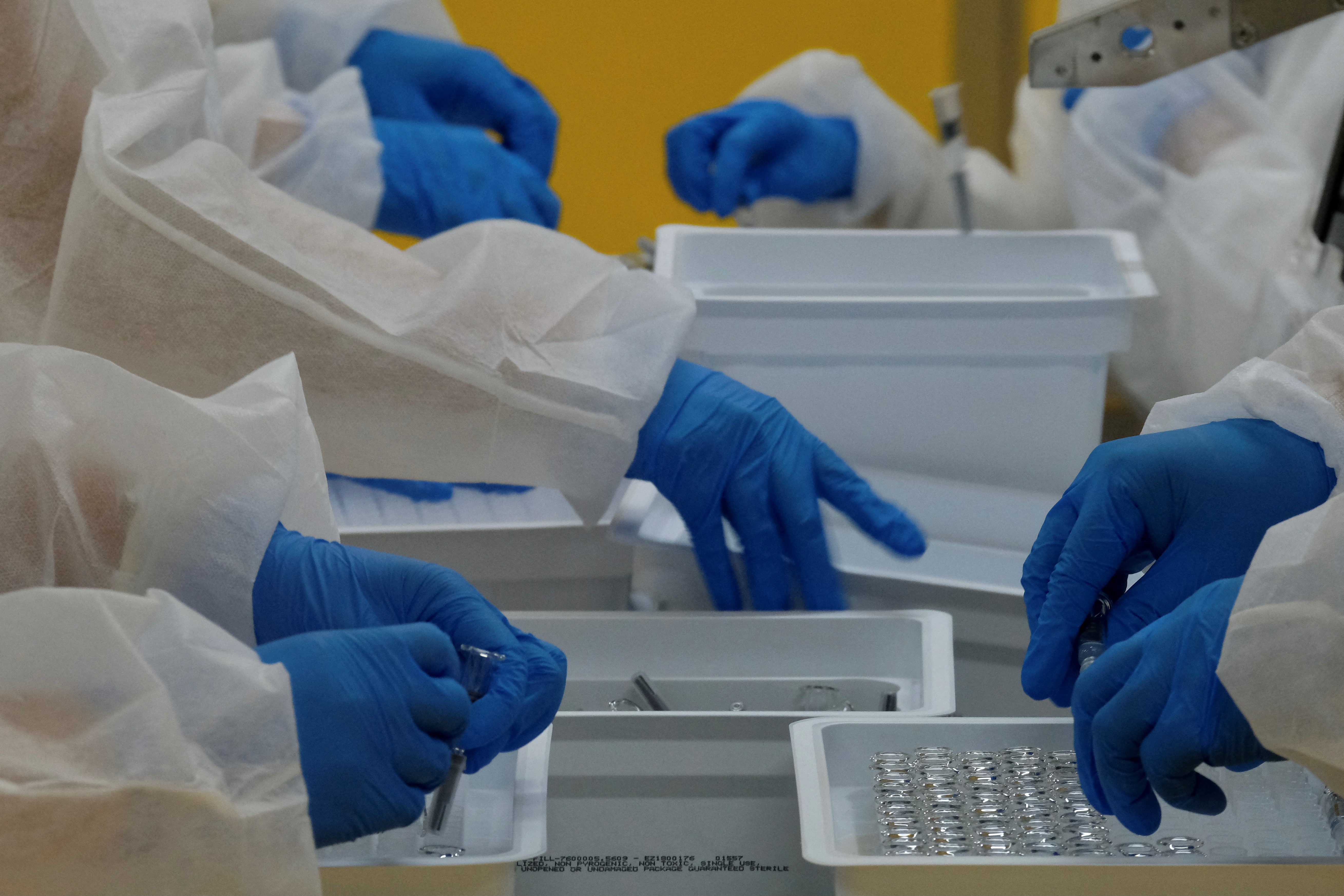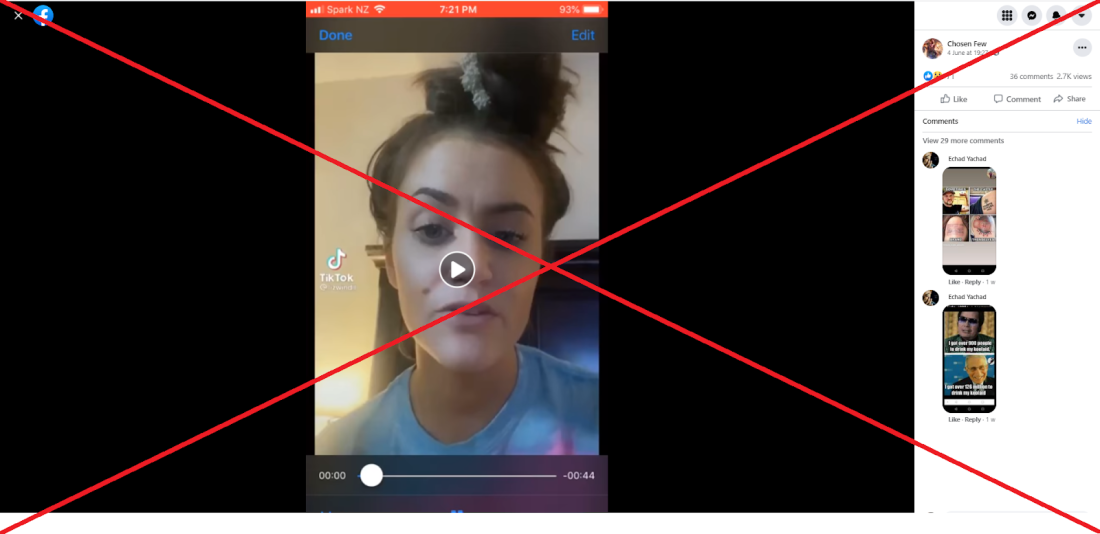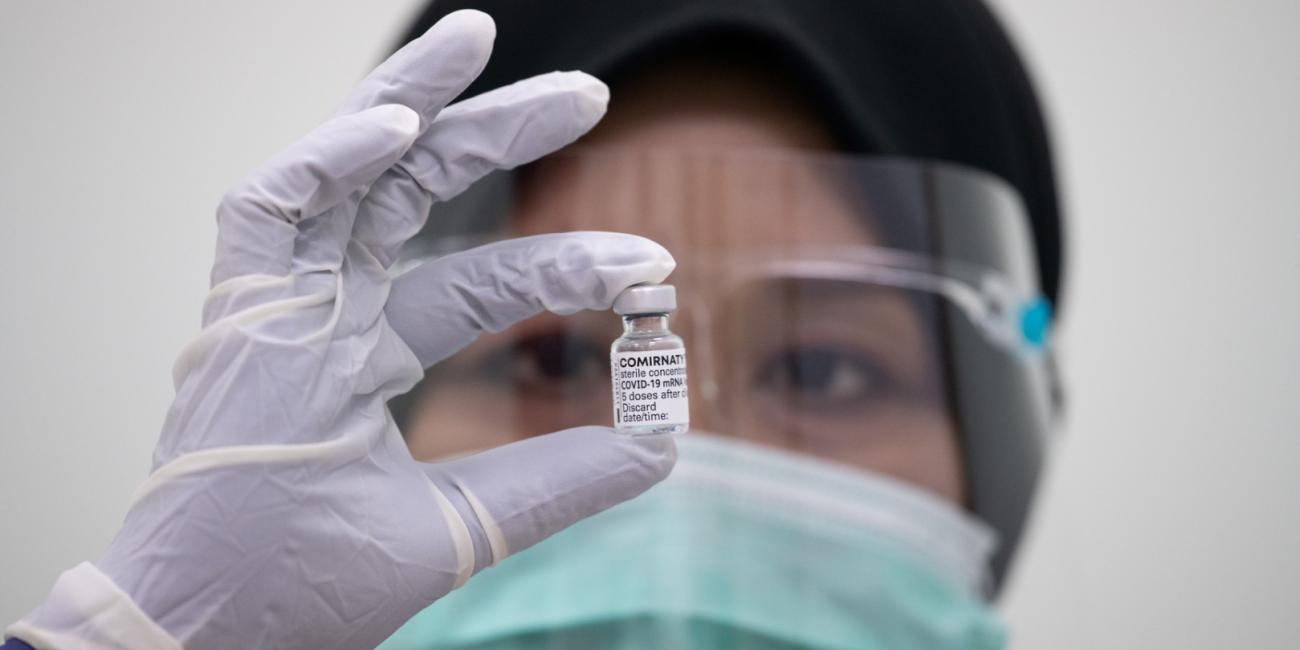
Video makes misleading vaccine claim about US health company's biosensor
- This article is more than four years old.
- Published on June 21, 2021 at 08:00
- 2 min read
- By Taylor THOMPSON-FULLER, AFP New Zealand and Pacific Islands
The claim was shared by a New Zealand-based Facebook user here on June 4, 2021.
The video has been viewed more than 2,500 times.

A screenshot of the video uploaded to Facebook, taken June 17, 2021.
An unidentified woman in the video tells viewers to read this article. It is titled: “Hydrogel Biosensor: Implantable Nanotech to be Used in Covid Vaccines?” It was published on a website called The Freedom Articles, which describes itself as "alternative media".
The woman shows a screenshot of the article. It claims the US Department of Defense and the Bill and Melinda Gates Foundation have partnered with US digital health firm Profusa “to develop a piece of nanotechnology made out of hydrogel (similar to a soft contact lens) that can be injected and implanted under the skin using a vaccine”.
“This sensor (or more accurately a biosensor), less than the size of a grain of rice, would effectively merge with the body. As a piece of nanotech, it would link up with the wireless network...and it would both transmit information about you and your body to authorities, as well as receive information.”
The Freedom Articles report shown in the video references another story from US military news website, Defense One, which describes a sensor from Profusa.
Videos making similar claims were shared on Facebook here, here and here. The original video was posted on TikTok here.
The claims in the video and article, however, are misleading.
Technology study
The biosensor, called the Lumee, is a minuscule under-the-skin hydrogel patch that can detect changes in the body, according to the Profusa Website.
The technology is being studied for its potential use as an early warning system for pandemics.
The study, according to this press release from Profusa, is being conducted at Imperial College London. It is being run in collaboration with Duke University and RTI International research institute.
Profusa CEO, Ben Hwang, said the biosensor is not being injected into the body through Covid-19 vaccinations.
“Our sensors are not part of any vaccinations, including Covid-19, nor are any part of our technology platform part of any vaccinations,” he told AFP.
According to Profusa’s Hwang, the biosensor is too big to be injected into a human body through vaccinations.
“The sensors are injected via a hypodermic needle, at the present time a 19 gauge needle, which is larger than the needles used to deliver a vaccine,” he said. “It cannot be injected in the same modality as a vaccination”.
The UK Medicines and Healthcare products Regulatory Agency (MHRA) said the technology was not being injected as part of Covid-19 vaccinations.
“The injectable Lumee Oxygen sensor and injector Lumee Pen are not approved for use alongside any of the approved COVID-19 vaccines,” an MHRA spokesperson told AFP.
AFP has previously debunked various false claims about Covid-19 vaccines, including that the jabs contain magnetic microchips or electronic devices that can activate light bulbs.
Copyright © AFP 2017-2026. Any commercial use of this content requires a subscription. Click here to find out more.
Is there content that you would like AFP to fact-check? Get in touch.
Contact us




